- Home
- William Bell
Zack Page 5
Zack Read online
Page 5
“How much is it worth?”
“Oh, I could give you, maybe, a few hundred for it.”
“You’d buy it from me?”
“I make custom jewellery from time to time for certain clients. I could use it. But like I said, it’s not very high grade. And I’d have to see a letter from your parents giving you permission to sell it.”
I slipped the nugget back into the baggie.
“No problem,” I said. “Thanks a lot.”
Practically bursting with happiness at my sudden wealth, I rushed back to the market and Jen asked her boss if she could take a fifteen-minute break. She drew two giant colas from the machine when the boss wasn’t looking and we walked around the displays, holding hands and pretending to be interested in the merchandise. I fought with myself. One minute I’d be on the verge of telling her about the nugget, the next I’d be counselling myself to keep it secret a while longer, at least until I talked to The Book about my research project.
“Why not come over tonight and we’ll watch a movie?” Jen said as we returned to the grill.
“Um, maybe not.”
“Why? Got another date?” she said playfully.
“No, it’s, well, would your parents be okay with me visiting?”
“What do you mean?”
“I mean, do they know about me?”
“Sure. I told them I’m going out with you.”
We stopped. Jen went behind the counter and put on her apron.
“I mean, do they know about me?”
Jen looked at me curiously, then her brows creased in anger. “That’s kind of insulting, you know, Zack.”
I didn’t respond. I tossed my empty cup into the waste bin beside the counter.
“Maybe,” she said stiffly, “you’re a little too sensitive about that.”
“Maybe that’s easy for you to say.”
“My parents are colour-blind, Zack. Okay?”
“Okay. Sorry.”
“Come over around seven.” Then, turning to her work, she added, “If you feel like it.”
I left the market, depressed by the knowledge that, although things were going good between us, deep down I still wondered about her.
Before supper was put on the table—Dad was cooking up one of his culinary monstrosities, macaroni with cheese and ham—I helped Mom in the garden, breaking up lumps of soil with a hoe, working up a good sweat. After we had struggled through the meal, making fun of the “yellow death,” as Mom had named the dish, I hurried through my kitchen chores and drove over to Jen’s. She lived in a small stone house near St. Joseph’s Church.
Her parents were very nice. They said hello and cleared out of the family room as if on cue, then Jen and I watched a horror flick. The atmosphere was a little frosty at first—in the room, not the movie—but after we had made a few jokes about the number-one vampire, who was about as scary as a wet rag, we were laughing. About halfway through the movie Jen climbed onto my lap. I don’t know what happened after that—in the movie, not the room.
I got home about ten-thirty, checked in with my parents, who were playing Scrabble at the kitchen table and arguing good-naturedly about a word Mom said Dad had just made up out of thin air, and took my loot from under the bed.
The two rolled-up straps were even stiffer and harder, because they had dried out, and when I attempted once more to unroll them they resisted. The ends were folded back and sewn to form loops. Probably, I thought, they were belts of some kind, and the loops had held buckles. If they were, whoever owned them must have been as fat as a tub because, if stretched out, they would have been pretty long.
So I made notes on them, and sketched them in my normal incompetent way, and set them aside. The Cs of iron were even less interesting. I took them to the garage and dropped them into a pail of solvent and went back into the house to wash the rust from my hands. Once more I began to doubt that the stuff I had found would make a project solid enough to satisfy Ms. Song. But I had no other ideas.
Chapter 11
The Book rushed into the library, a thick sheaf of papers in one hand, a cup of coffee in the other, her running shoes chirping on the tile floor. She sat down beside me at a table in a quiet corner of the reading room and plunked down her cup, slopping coffee on the Formica top.
“Shoot!” she exclaimed, wiping up the puddle with a tissue, her idea of a really raunchy curse, I guessed. “Okay, Zack, I’m all ears. What do you have?”
I had ridden the bus to school with my treasures on my knee in a gym bag, my stomach fluttering, alternating between hope and the certainty that I was about to make a monumental fool of myself. “What is this junk?” I imagined The Book sneering. “I gave you a break and you come to me with something you dug up in your yard?”
If she doesn’t accept my proposal, my history credit goes down the drain and I might as well quit school now and avoid the June rush, I had thought as I sat fidgeting in the library, waiting for her to be late.
My notes were carefully arranged before me on the table, along with the kindergarten-level drawings. My gym bag was on the floor beside me.
“Well,” I began, “you’ll probably think this is a terminally goofy idea—”
“Nice sales pitch,” she interrupted, and sipped her coffee.
Great, I thought, she’s laughing at me already. But I plowed forward. I related how I had found the box, dug it up, cleaned and inspected both it and its contents. As I spoke I showed her my notes, pointed to the sketches, drew the objects one by one from the bag for dramatic effect.
As I spoke my confidence grew. She sat still and silent, her coffee cooling beside her, her hands resting on the pile of tests, fingers interlocked. I ended by handing her the iron Cs, now scraped clean of rust.
“And I have no idea what these metal things are,” I concluded. “But my proposal is, I want to find out what all this stuff is and how it ended up buried in the ground behind our house.”
“You really don’t know what this is?” she asked, taking the Cs from me. Her voice was quiet. “Are you serious?”
Damn. I had lost her. She hadn’t been interested at all; she had been letting me say my piece, politely, because that was the kind of teacher she was. Now would come the gentle criticism, the soft-spoken rejection.
“Yes, Ms. Song. I don’t have a clue.”
“I do.”
“And?” As if I cared at this point.
“Well, you’ll have to find out. I’m not telling. But, Zack, prepare yourself. You’re not going to like it.”
“You mean you accept the project?”
“Are you kidding? I think it sounds great. And you’ve made a terrific start, with your notes and all. Come on, I’ll give you some stuff to get you started.”
When we left the library, I was juggling my gym bag and six huge books Song had pulled from the shelves and slapped into my hands as I hurried behind her through the stacks.
“See you tomorrow, Zack. I’m late. Happy hunting.” And with that she tore off down the hall.
I stumbled to my locker and stored all the stuff, then began gathering my books for next class.
What had she meant when she’d said I should prepare myself?
The books Song had given me were about the American Revolutionary War, the War of 1812 and local history. I would have bet Fergus had about enough history to fill a pamphlet, but there were two fat volumes.
That evening I sat at my now crowded desk with a can of tonic water and a bowl of taco chips, Miles Davis on the stereo, and set to work. I liked the Illustrated Encyclopedia of the American Revolution best because it was all pictures. I flipped through it at random, wondering what The Book thought I’d find in there, since my box had been dug up in Canada. There were page after page of muskets, powder horns, uniforms, belts, swords, hats; pioneer tools like axes—I recognized the axe head I had found in the yard—adzes, plows and harnesses; dresses, bonnets, breeches and shoes. Three CDs were consumed as I pored over the photos, and by the
time I closed the book I was able to make four lengthy additions to my notes. And I had generated lots of questions.
The soot-covered stones I had dug up from the same hole as the box had probably been remnants of a pioneer cabin’s chimney and fireplace. Which meant that our house was built almost on top of the site. Who had lived on our land? Had the cabin burned down or rotted away after being abandoned?
Piffard the jeweller had probably been right: the nugget seemed to have been cast in a bullet mould. There were pictures of these tools in the book. But why cast gold as a bullet? To shoot a werewolf? I wondered, laughing and spraying corn chip dust all over my work. Was it easier to carry or hide the gold as shot rather than dust? Or had it been a coin, melted down?
The leather straps, I deduced, were exactly that, not belts. In the book was a picture of a Butler’s Rangers dress uniform. The Rangers were a corps of British soldiers who had fought the Americans guerrilla-style, with Indian allies. The straps were worn criss-crossed over the shoulders and chest and held a sword on one side and an ammunition box on the other. Had the cabin owner, the pioneer, once been an army man?
That question seemed to be answered by the identity of the box—and that was the most exciting discovery. It was called a document box—I saw it looking at me from page 256 of the book. The crown represented England and the initials G R stood for Georgius Rex—King George, who reigned during the time of the American Revolution.
In other words, my silly half-rotten box was more than two hundred years old! And that proved that the contents were at least as old.
That night sleep came late. My mind spun, throwing out question after question. Who had lived on our land on the banks of the Grand River two hundred years ago? Why had he or she buried the box? To hide it? To save it from or for someone?
“The thing to do,” I whispered into the darkness, “is search the title to the land.” I had learned when Mom and Dad bought the place that a lawyer had to do a “title search” first to make sure there were no financial liens on the property, and to be certain the person selling it actually owned it. Dad had explained that the registry office could tell you all the proprietors of a piece of land since the Crown had granted it to its first owner.
Maybe if I did that I’d find a clue to the person who buried the box, the nugget, the straps and—
It was then I remembered the iron Cs. What the hell, I thought, I can’t sleep anyway.
I stood at the kitchen sink, having used up most of a box of steel wool pot cleaners, up to my elbows in dirty soapy water, working quietly so as not to wake up my parents. The solvent I had soaked the iron in had loosened most of the surface rust, which came off fairly easily with the steel wool. After half an hour’s scrubbing I decided that the thing was as clean as it was going to get. I dried the Cs with a dish towel—leaving it stained with rust—and returned with the iron to my room.
Under my desk lamp the ring was blackish, its surface pitted and scarred from corrosion. As I ran my fingers, now tender from the scrubbing, along it I noticed a place where the roundness had been ground flat.
I trained my magnifying glass on the spot. Barely visible were three letters scraped or punched into the metal. R P, then a big space, then a T. Once more a rummage in the desk drawer. Congratulating myself that I never threw anything away, I opened the smallest blade of the Swiss Army knife Mom had given me when I was ten. Carefully, I scraped the metal between the letters. Slowly, one by one, the rest of them emerged: R. PIERPOINT.
My enthusiasm soared. I had a name. I had a place to start.
Chapter 12
The Wellington County Museum, a great grey pile of local quarried stone shaped like a shoe box lying on the long end, with a central tower, sat brooding on the top of a big hill on City Road 18 between Fergus and Elora, as uninviting as a prison. In fact, it used to be one—of a sort. According to the plaque bolted to the wall at the entrance, it was built in 1877 as “the House of Industry and Refuge”—in other words, a poorhouse.
I locked up my bike and shouldered my backpack. Just inside the door was a staircase to the left and beside it a small counter of polished wood. Behind the counter an elderly woman sat at a cluttered desk, a book open in front of her. She turned as she heard the door hiss shut behind me.
“Hello,” she said. “Is this your first visit to our museum?” Her hair was silvery white, her face wrinkled and kindly.
“Yes, it is.”
“Well, the fee is four dollars. Two for students.”
“I was wondering, is there someone who I can talk to, who knows history and stuff?”
Way to go, Zack, I thought. History and stuff. In a museum. What a moron.
“You mean the curator?”
“Sure, that’s right.”
“Just a moment, please.” She lifted the phone, pressed a button, and spoke softly for a moment. “He’ll be right out.”
“Thanks.”
For some reason I had expected that everyone who worked in a museum would be old, but the guy who came through the door behind the staircase was in his thirties, with a rangy build and a shock of vivid red hair. He wore a denim shirt and cork sandals.
“Can I help you?” he greeted me.
“I’m doing a school project and I wondered if you would look at something for me.”
“Come this way.”
He led me into a small office whose walls were lined with shelves holding books, knick-knacks, boxes of computer diskettes and various artifacts. On the file-strewn desk were a phone, three coffee mugs, all of them dirty, a computer and an elaborate pen set covered with dust.
The curator held out his hand. “I’m Murray Knox.”
“Zack Lane.” I shook hands with him.
“Take a seat,” he invited, lowering himself into a chair behind the desk. “So what’s this assignment you’re working on?”
I sketched in the background, leaving out a lot, still intent on keeping as much secret as I could. I left out the part about the box, straps and nugget.
“Well, local history. That’s our specialty around here.”
I unzipped my pack, lifted out the linked iron Cs and placed them on his desk blotter.
“My, my,” he said without touching it, but plainly interested. “You dug that up in your yard?”
“Yes.”
“Where do you live?”
I told him.
“Holy cats,” he muttered. “Mind if I touch it?”
“No, not at all.”
He picked it up and with a deft movement formed it into a ring with the two box-shaped loops resting against one another. “Uh-huh,” he said. He looked up at me, his eyes sparkling with excitement. “What is it you want to know?” he asked me.
“I want to know what it is,” I said, recalling The Book’s warning that I wouldn’t like the answer.
He flushed. “Forgive me,” he said. “I didn’t realize.”
“You didn’t realize … I don’t understand, Mr. Knox.”
“It’s a neck iron. I take it you’ve never seen one before?”
“No.” A neck iron. Who on earth would wear something like that? And what was this guy’s problem, anyway? He was acting as if he’d just told me I had six months to live.
“See here?” He held up the ring, speaking with hesitation. “These D-shaped loops could be held together with a lock and chain. Or, alternatively, if the slave was part of a coffle—a string of slaves—a rope or chain would be passed through and on to the next slave in the line, making escape impossible.”
My mind went blank. “Slave?” I whispered, my mouth dry.
“Yes. I’m sorry to embarrass you.”
I swallowed hard and straightened up in my chair, only now realizing why he was uneasy. He wasn’t the only one.
“There’s … there’s a name on it,” I told him.
“Yes, that’s not uncommon,” he said, hefting the ring in one hand. “That would be the name of the slave’s owner—and the slave too, of cour
se.”
My head was beginning to return to normal. “I don’t understand.”
“Normally a slave was given the owner’s name. That’s the reason, er, blacks in the U.S. and Canada usually have Anglo surnames. Let’s see what this says.”
He held the ring closer to his face and turned it until he found the letters. “Well, I’ll be damned.”
“Do you know it?”
“Pierpoint? I surely do. Zack, you’ve made an important discovery. Come with me.”
PART TWO
The True Story of
Richard Pierpoint
alias
Richard Parepoint
alias
Captain Dick
alias
Black Dick
alias
PAWPINE
By Zachariah Lane,
great-great-great-great-great-great-grandson of African slaves
Dear Ms. Song,
Here is my project. I’m sorry it’s so long, and it’s late, long past the due date, but I got very involved in it and I guess I got carried away. I didn’t want to leave anything out. I’m not making excuses, but I read two whole books on the “middle passage” alone, not to mention a book on each of the wars. And I spent a zillion hours (well, almost) poring over archival documents at the museum (Mr. Knox was a big help), searching the title to our property at the land registry office and scanning the Internet for info on a man most people have never heard of.
You have seen the Revolutionary War British document box, the two Butler’s Ranger shoulder straps, the nugget and the slave’s neck iron. This project tells the tale of the man who owned them.
I know a history paper is supposed to be objective, but I decided to write this as a story because the facts are only the beginning, and no matter how hard I tried I couldn’t stay neutral. I hope I don’t fail because of that, but if I do, it’s okay.
Thanks for letting me try this. Even if I fail, it was worth it.
P.S. Jen helped me type this. I hope that’s legal.

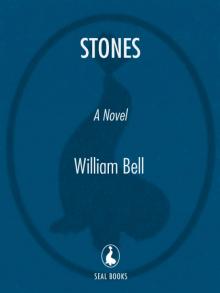 Stones
Stones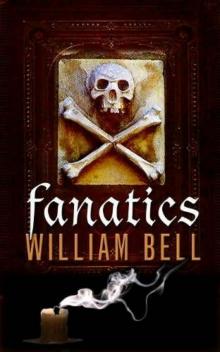 Fanatics
Fanatics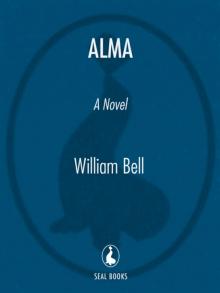 Alma
Alma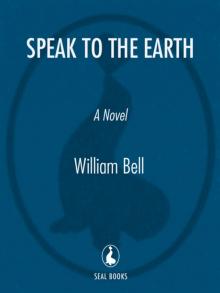 Speak to the Earth
Speak to the Earth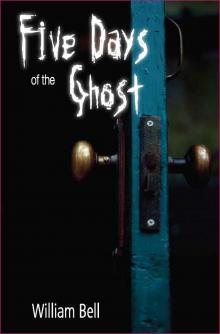 Five Days of the Ghost
Five Days of the Ghost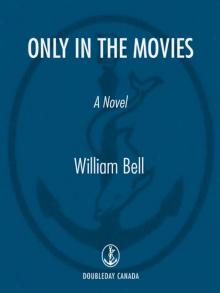 Only in the Movies
Only in the Movies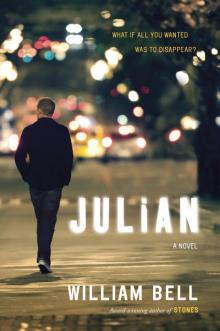 Julian
Julian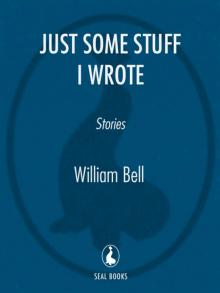 Just Some Stuff I Wrote
Just Some Stuff I Wrote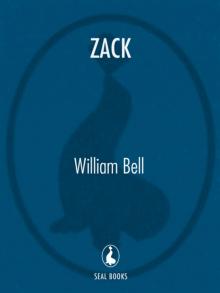 Zack
Zack Forbidden City
Forbidden City Death Wind
Death Wind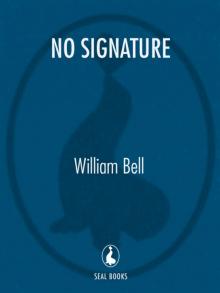 No Signature
No Signature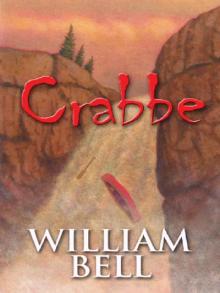 Crabbe
Crabbe